All chinchilla cages should have some form of bedding in the bottom of the cage to absorb urine and help keep odors down. Some cages have a wire grate that is suspended above the pan while others have an open pan. Regardless of the type of cage, three types of bedding; wood shavings, recycled paper products, and fleece liners are acceptable for use in chinchilla cages.
Wood Shavings
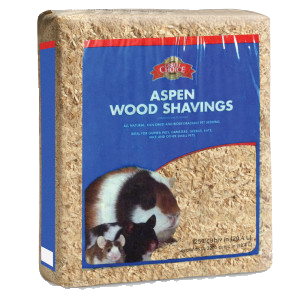 Wood shavings are the cheapest form of bedding available. Two types can be found in pet stores or feed stores, pine and aspen. Pine shavings are usually light tan to yellow in color and do an excellent job of absorbing urine and odors. Check the package for the words “kiln dried” and “other soft woods”. Pine needs to be kiln dried to be usable. If it is not kiln dried, the aromatic resins in the wood can cause serious health issues. Some times, a bag of wood shavings appears to be pine but is in fact, a mixture of pine and other soft woods such as spruce. Spruce is not acceptable as bedding for chinchillas. It is always a good idea to check the label prior to purchasing the product.
Wood shavings are the cheapest form of bedding available. Two types can be found in pet stores or feed stores, pine and aspen. Pine shavings are usually light tan to yellow in color and do an excellent job of absorbing urine and odors. Check the package for the words “kiln dried” and “other soft woods”. Pine needs to be kiln dried to be usable. If it is not kiln dried, the aromatic resins in the wood can cause serious health issues. Some times, a bag of wood shavings appears to be pine but is in fact, a mixture of pine and other soft woods such as spruce. Spruce is not acceptable as bedding for chinchillas. It is always a good idea to check the label prior to purchasing the product.Aspen shavings are also acceptable. They are normally a light beige color, often with steaks of darker colors running through them. Like pine, aspen shavings need to be kiln dried. Aspen is a little more expensive than pine, but many people prefer the smell of aspen over pine.
One type of wood shavings should be avoided. This is cedar. Cedar shavings are high in aromatic oils which can cause respiratory problems in rodents, including chinchillas. Cedar shavings are red in color and have a strong aromatic scent.
Recycled Paper Products
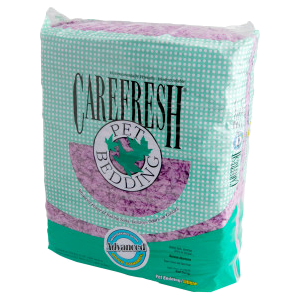 Recycled paper products can also be used. These products can be found is either fluffy or pelletted varieties. Fluffy recycled bedding is quite soft and comfortable for chinchillas to walk or lie in. It does a good job of absorbing urine. Some people feel that the fluffy beddings do not do a good job with the urine smell, but others have no problem with it. Recycled paper products are much more expensive than wood shavings.
Recycled paper products can also be used. These products can be found is either fluffy or pelletted varieties. Fluffy recycled bedding is quite soft and comfortable for chinchillas to walk or lie in. It does a good job of absorbing urine. Some people feel that the fluffy beddings do not do a good job with the urine smell, but others have no problem with it. Recycled paper products are much more expensive than wood shavings.Another type of recycled bedding comes in pellet form. Like the fluffy versions, pelletted beddings do a good job of absorbing urine. The major difference is comfort. Since the pellets are hard until wet, this type of bedding is inherently uncomfortable. It is a good choice for cages that have a wire mesh bottom that separates the chinchilla form the bedding or for use in a potty pan.
A word of caution is necessary. If the chinchilla eats any recycled bedding, the bedding should be removed from the cage and replaced with a different (wood shavings or fleece) bedding. The reason this is necessary is simple. Recycled paper beddings expand when wet. If a chinchilla eats the bedding, it poses the hazard of swelling in the chinchilla’s digestive tract and causing an impaction. Impaction (also known as a blockage) is a serious medical condition that requires medical treatment and could cause death.
Fleece Liners and Litter Pans
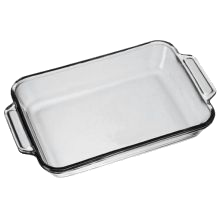
A glass dish can be
used as a potty
Fleece liners should be made of fleece and no other materials. All seams need to be hidden or the chinchilla can rip them open and swallow the thread. Ingesting thread is very hazardous for chinchillas. The thread can become entwined in the intestines and cut into them.
Usually, fleece liners are used in conjunction with a litter or potty pan. See the section on potty training for more information. The pan, usually a glass baking dish, is filled with wood shavings or recycled bedding. The chinchilla will use the potty to urinate but will still continue to defecate wherever it is, since chinchillas cannot control their bowel movements.
Beddings to be Avoided
Other beddings or litter do exist and are sold at pet stores but they are not recommended for chinchillas. Some of these include newspaper, cat litter, and corn cob bedding. Newspaper is not very absorbent and does nothing to control urine odor. In fact, urine soaked newspaper smells worse than urine alone. Cat litter should never be used with chinchillas. All forms of cat litter contain ingredients that are hazardous to the chinchilla should it eat some. Corn cob bedding poses the risk of impaction should the chinchilla eat it.


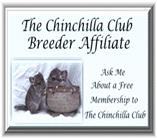
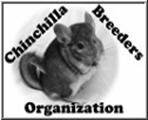 Site Last Updated on December 31, 1969 05:00 pm
Site Last Updated on December 31, 1969 05:00 pm